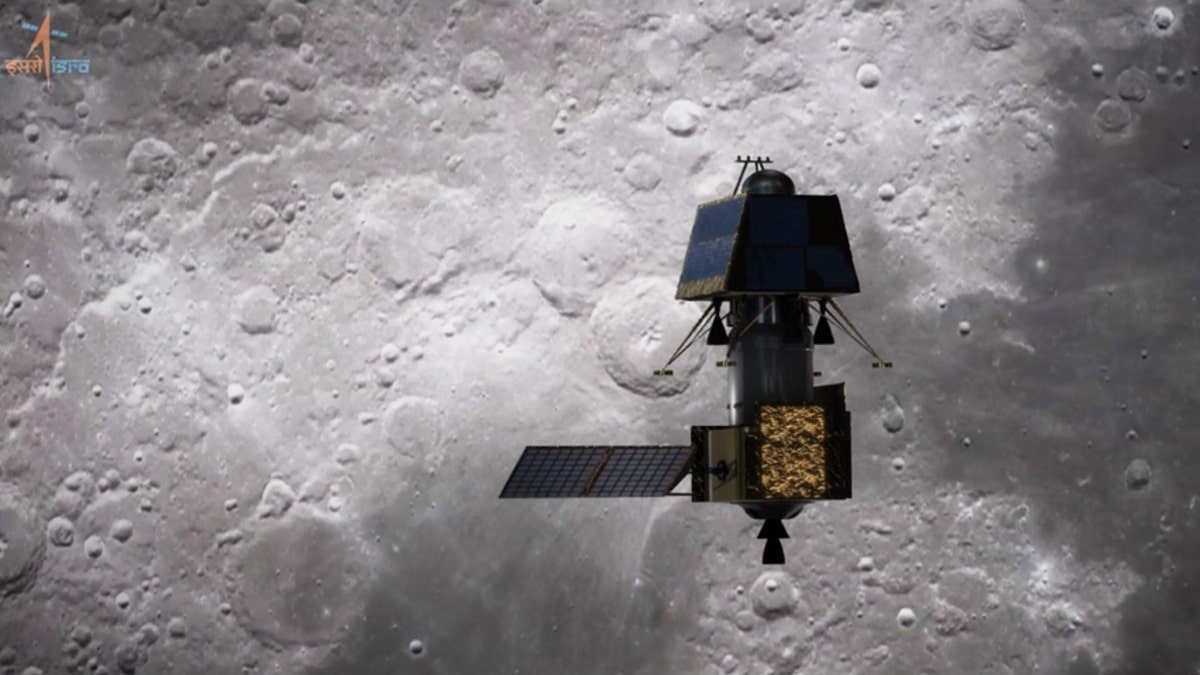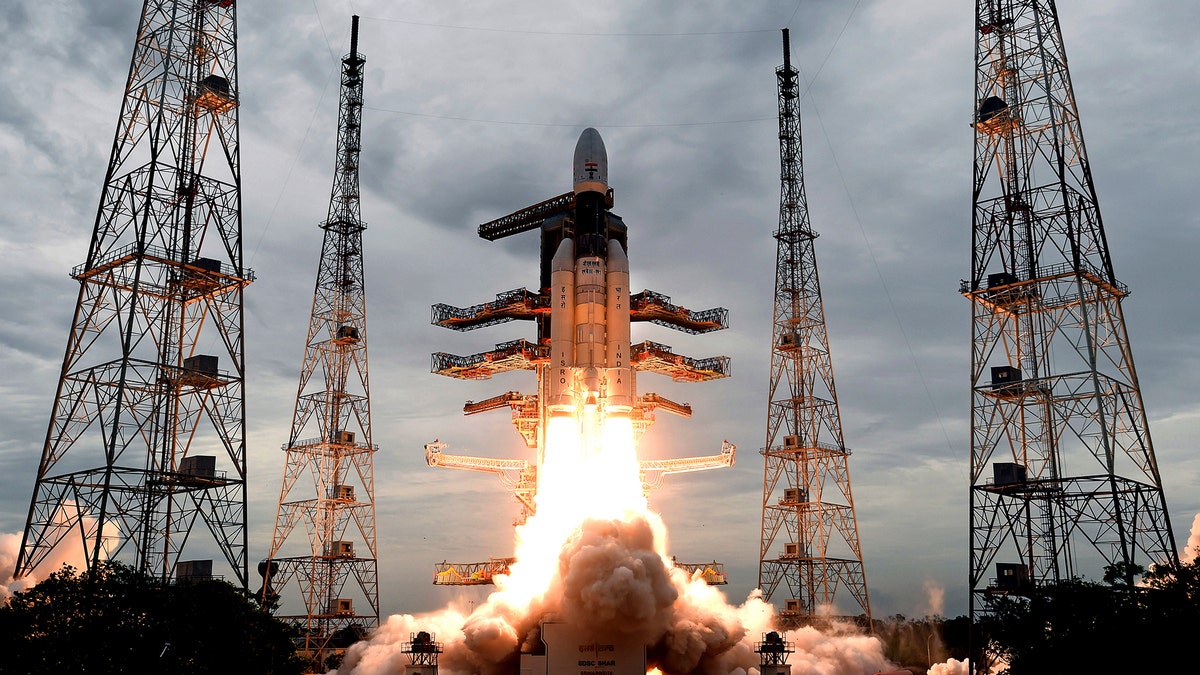Fox News Flash top headlines for August 20
Fox News Flash top headlines for August 20 are here. Check out what's clicking on Foxnews.com
India's Chandrayaan-2 spacecraft has entered the Moon's orbit, the country’s space agency announced Tuesday.
The unmanned spacecraft’s Vikram lander is expected to reach the lunar surface next month, taking India into an exclusive group of countries that have successfully landed on the Moon.
Chandrayaan will continue circling the moon in a tighter orbit until reaching a distance of about 62 miles from the moon's surface.
INDIA SETS SIGHTS ON MOON, UNVEILS SPACECRAFT FOR HISTORIC MISSION
The lander will then separate from the orbiter and use rocket fuel to brake as it attempts India's first moon landing on a relatively flat surface between two craters in the south polar region on Sept. 7 — an area where no moon landing has been attempted before.
“Today (August 20, 2019) after the Lunar Orbit Insertion (LOI), #Chandrayaan2 is now in Lunar orbit. Lander Vikram will soft land on Moon on September 7, 2019,” tweeted the Indian Space Research Organisation.
“Congratulations to Team @isro on #Chandrayaan2 entering the Moon’s orbit. This is an important step in the landmark journey to the Moon,” tweeted Indian Prime Minister Narendra Modi on Tuesday
The Chandrayaan-2 mission launched from Sriharikota in southern India on July 22. The mission is on track even though a technical glitch delayed the launch for a week.
INDIA LAUNCHES HISTORIC MISSION TO THE MOON
So far, only the U.S., Russia and China have successfully landed on the Moon.

Artist's impression of Chandrayaan-2 from an Indian Space Research Organisation video. (Indian Space Research Organisation)
Indian space hardware has reached the Moon before, although the country has yet to achieve a “soft landing” on the lunar surface.
India's first lunar mission, Chandrayaan-1, orbited the Moon in 2008 but did not land there. It did, however, launch an impact probe that was intentionally crashed into the Moon.
NASA CHIEF: FUTURE ARTEMIS MOON MISSIONS WILL BUILD ON APOLLO 11’S INCREDIBLE LEGACY
Chandrayaan-1 operated for 312 days.

This July 22, 2019, photo released by the Indian Space Research Organisation (ISRO) shows its Geosynchronous Satellite launch Vehicle (GSLV) MkIII carrying Chandrayaan-2 lift off from Satish Dhawan Space center in Sriharikota, India. (Indian Space Research Organisation via AP)
The Moon looms large for a number of countries’ space programs. China, for example, became the first country to successfully land a probe on the far side of the Moon earlier this year when the Chang’e 4 lander reached the lunar surface on Jan. 2.
However, Israel’s unmanned Beresheet spacecraft crashed when it attempted to make a Moon landing on April 11. It was just a few hundred feet above the lunar surface when Mission Control in Yehud, Israel, lost contact with the probe.
A preliminary investigation found that a manual command caused the crash.
The U.S. also has its sights set on the celestial satellite and plans to land American astronauts, including the first woman, on the Moon by 2024. The Artemis program will also establish a sustainable human presence on the Moon.
NASA recently revealed details of its vision for the Artemis Moon Lander.
APOLLO 11’S MICHAEL COLLINS RECOUNTS THE CREW’S THREE-WEEK QUARANTINE ON THEIR RETURN FROM THE MOON
Speaking at Kennedy Space Center on the 50th anniversary of the Apollo 11 Moon landing on July 20, Vice President Mike Pence announced that the Orion capsule that will take American astronauts back to the Moon is ready.
After Apollo 11 astronauts Neil Armstrong and Buzz Aldrin set foot on the Moon only 10 more men, all Americans, walked on the lunar surface. The last NASA astronaut to set foot on the Moon was Apollo 17 Mission Commander Gene Cernan on Dec. 14, 1972.
CLICK HERE TO GET THE FOX NEWS APP
At a White House event last month Apollo 11 astronaut Buzz Aldrin voiced his disappointment over America’s space progress since the days of Apollo 11.
Fox News’ Chris Ciaccia, Morgan Cheung and the Associated Press contributed to this article. Follow James Rogers on Twitter @jamesjrogers
